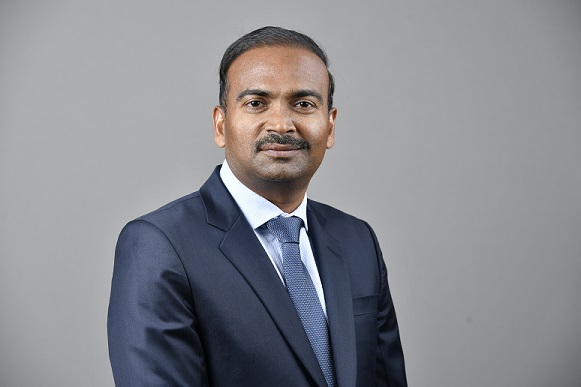Srinivas Rao Ravuri is the chief investment officer at PGIM India Mutual Fund. In this interaction, he provides insights gleaned over 27 years of an investing career.

1. What are the basic INVESTING PRINCIPLES that you have come to acknowledge and appreciate over the decades?
- Asset Allocation must establish the framework of an investor's portfolio.
- Diversification in portfolio construction is mandatory.
- Sector and thematic funds are best avoided.
Everyone invests to make money, irrespective of the fund they choose. As the CIO, my task is to ensure that I provide investors with decent risk-adjusted returns. When it comes to sector/thematic funds, a lot works against us. When the sector is in the doldrums and it is the perfect opportunity to jump in and make superior returns, but most investors shy away. Instead, they jump in when the cycle is peaking and then get frustrated that they have a long wait. Investors may intellectually agree with the logic of underperformance depending on cycles, but they will be deeply dissatisfied. It is a challenge to make sure that investors have good investor experience in sectoral funds.
2. What is your CORE INVESTING PHILOSOPHY that you carry with you irrespective of where you work?
GARP – Growth at reasonable price, is well embedded in my investing DNA.
Investing in equities is all about investing for growth. If there is no growth, there is no incentive to invest. But at the same time, what price you pay is very important. Whether you are buying an entire company, a 2% stake or just a 0.2% stake. What price you pay for a business is the most important factor.
This is why GARP would encapsulate my investing philosophy.
Valuations should never be ignored when buying a stock. I look at the PE and PEG and near-term earnings growth because it is the most important driver of stock prices.
3. Avoiding big mistakes is half the job done. So what are the RED FLAGS you look for when valuing a business?
- Leverage: Companies that have destroyed wealth have one common factor, high leverage. At PGIM, only companies that have less than 3x leverage are considered for the investment universe.
- Operating cash flows: A company should have positive operating cash flows in 7 out of 10 years, so this period covers two business cycles. Other ratios or metrics can be tinkered with, but Operating Cash Flows cannot be manipulated.
- Market share. A loss of market share or company growth being significantly lower than industry growth.
- Demonstrated corporate governance. Do the promoter interest and minority shareholder interest align? Of course, here it is just shades of grey, not black and white, due to the subjectivity of it.
4. Many look upon ESG with disdain and call it a fad. How do you view it?
The Securities and Exchange Board of India (SEBI) stipulated that the top 1,000 listed companies by market capitalization must disclose their Environmental, Social and Governance parameters, or what is commonly referred to as ESG.
I look at it from a very basic perspective. For instance, how much of ground water are you using this year as against the previous years? What measures have you implemented for recycling? What is the coal consumption per unit and how has this increased or decreased?
So ESG helps me understand the thought process of management and whether the company will survive in the future.
5. In this constant active-passive debate, what are the parameters that will determine the success of ACTIVE FUND MANAGEMENT?
We have processes in place. And these parameters will filter out companies that do not meet our investing criteria. But let’s say out of all the listed companies, 400 qualify to be in our investment universe. The decision on which 40 stocks to buy and how much to allocate to each is a call the fund manager will have to take. So the importance of a sound fund manager cannot be underestimated, however strong the processes are.
The decision on which sector to go overweight on and which to stay away from is also important.
Being underweight Financials and overweight Infotech and Pharma helped the performance in the first two years. When the market fell sharply this year, mid-cap IT companies dropped dramatically. We were overweight the IT sector and had mid-cap IT names, so naturally we got hit in the mid-cap fund.
Over the past 18 months, we have been overweight Capital Goods, Industrials and Pharma. And over the past few months we have begun to increase our exposure to Financials.
Getting the sector calls right, and then the right stocks within those sectors is what helped our funds perform.
To protect the downside, we have sector caps in place. Let’s say, for example, a fund manager may want to keep away from Financials. But the benchmark has a 25% weight to that sector. So the internal ruling mandates that the fund manager must have a minimum 15% exposure to Financials and cannot exceed 35%.
It also depends on the allocation to market cap outside the mandatory requirement. For example, a higher exposure to small-cap stocks in a mid-cap fund (min 65% exposure to mid- cap stocks) could also contribute or detract from performance in a particular market phase.